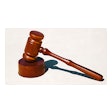
An increasing number of fans believe the simple act of purchasing a ticket gives them the right to say and do anything, and that free speech, protected by the United States Constitution, allows them to heckle and harass coaches and players as they see fit.
When a fan takes this behavior too far, he or she is usually escorted out of the facility and future ticket-buying privileges may be revoked. But what happens when that poor behavior extends beyond just one game? Can athletic administrators permanently ban an individual from their facilities, or does the fan have rights if the facilities are owned by the state?
These were questions before the court in Donnelly v. University of North Carolina, 2014 N.C. App LEXIS 971, after the University of North Carolina banned a fan from all of its athletic events.
THE TAR 'HEEL'
John Donnelly Jr., who graduated from the University of North Carolina in 1970, frequently attended UNC athletic events. From 2006 to 2012, there were a series of incidents involving Donnelly — from making sexually suggestive comments to female UNC athletics staff members to alienating fans by openly criticizing players in front of their family members during games. Some of these incidents occurred while Donnelly served as an usher and representative of UNC athletics. He also called various UNC athletics offices up to 13 times per day.
But it was an incident at the Women's Soccer College Cup tournament in San Diego in 2012 that ultimately earned Donnelly a lifetime ban from UNC athletic facilities. Donnelly, who had previously attempted to communicate with several female players both in person and via Facebook, found out which hotel the players were staying at by claiming he won an autographed soccer ball and couldn't locate the head coach's signature. The parents of the players, however, felt uncomfortable with Donnelly's presence at the hotel given his previous attempts to communicate with several players. He was asked to leave and did so willingly.
As a result of his consistent harassment of athletics staff members and athletes, as well as his inappropriate behavior at athletic events, on December 3, 2012, UNC issued a Notice of Trespass to Donnelly. The notice prohibited Donnelly from entering any area of UNC athletic facilities at any time in the future.
He appealed, but on March 7, 2013, UNC issued a Final University Decision denying Donnelly's appeal. One month later, Donnelly sought judicial review of the university's decision in the Superior Court of Iredell County, claiming UNC violated his First Amendment free speech rights. The court upheld the Final University Decision, which prompted Donnelly to take his fight to the Court of Appeals of North Carolina.
In rejecting Donnelly's appeal, the Court of Appeals held that the first inquiry a court must undertake when a First Amendment claim is asserted is whether the plaintiff has engaged in protected speech. While the court noted that it is well recognized that the First Amendment protects more than spoken or written word, the conduct in question must possess sufficient communicative elements to bring the First Amendment into play. In particular, to be protected speech, the conduct must convey a particular message, and that the message would be understood by those who heard or viewed it.
For example, the United States Supreme Court has recognized that students wearing black armbands to protest military involvement in Vietnam, sit-ins to protect segregation, and picketing about a wide variety of causes are behaviors that are protected by the First Amendment.
Citing Thorne v. Bailey, 846 F.2d 241, 243 (4th Cir. 1988), the court found that harassment, which had previously been cited as the reason Donnelly was banned, is not protected speech as Donnelly argued in his lawsuit, and concluded that Donnelly had failed to demonstrate that he was engaged in any speech protected by the First Amendment.
In reviewing Donnelly's second argument — that the trial court erred in affirming Donnelly's indefinite ban from all athletic facilities because UNC's decision was arbitrary, capricious and unsupported by substantial evidence — the court held that an administrative ruling is deemed arbitrary and capricious when it is whimsical, willful and an unreasonable action without consideration or in disregard of facts. The court found that UNC's decision was none of these and was instead based on a series of incidents over a number of years.
RELATED: Managing Bad Parental Behavior at High School Games
FREE SPEECH VS. HARASSMENT
So what can athletic administrators learn from the court's decision? First, while the First Amendment gives speech very broad protections, not all speech is protected. One exception to the right of free speech is harassment. As the court noted, university administrators have a duty to provide a safe environment for students, and regulating harassment on campus satisfies that duty. Therefore, the restrictions placed on Donnelly were no greater than were essential to promote UNC's legitimate interest.
Second, when dealing with fans involved in more than just a single event, it is essential that administrators follow all proper procedures when imposing penalties or bans. The university previously disciplined Donnelly to a lesser extent and notified him of the inappropriateness of this behavior, but these measures failed to stop his harassing behavior. Without following the proper procedures based on all the relevant evidence, UNC's actions could have been deemed arbitrary or capricious. It should be noted, however, that because facility operators have a duty to provide a safe environment for fans, operators have the right to remove unruly or drunk fans at every event.
Attorney John T. Wolohan is a professor of sports law in the David B. Falk College of Sport and Human Dynamics at Syracuse University. This article originally appeared in the November 2014 issue of Athletic Business with the title "Admission Denied."
































